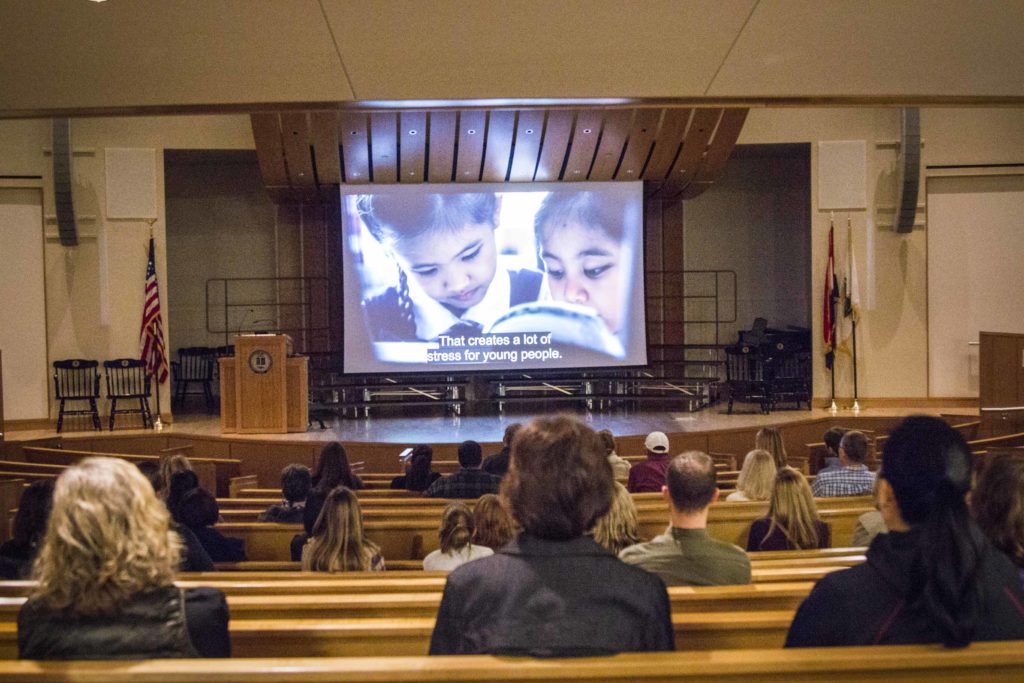Last week, members of the MICDS community watched the film Angst: Anxiety isn’t cool but talking about it is. The documentary raises awareness about anxiety, its causes, effects and what we can do about it.
While “Angst” documents the struggles some people have with anxiety, it also reveals their hope for the future. Noah, a teenager in the film, describes it this way: “Anxiety doesn’t define me. It’s not just a curse; it also gives me strength.”
„Everybody needs to know that anxiety disorders are real, common and treatable instead of viewing them as a personal choice or something to be ashamed of,” said Dr. Jerry Bubrick, Senior Director of Anxiety Disorders Center, Child Mind Institute. “Getting help early is crucial in giving people the tools they need to feel better. We just need to start the conversation.“
„We felt it was important to make a movie that could raise awareness to open up the conversation and provide hope,“ said Andreen, IndieFlix CEO and “Angst” Producer. „So many people struggle with anxiety and have trouble talking about it. We want to change that.“
Anxiety disorders are the most common mental health challenge in the U.S., impacting 54 percent of females and 46 percent of males, with age seven being the median age of onset, according to the World Health Organization. While anxiety disorders are highly treatable, only one-third of those suffering receive treatment. Everyone involved in the development of “Angst” has a personal experience with anxiety – from the producers to the interviewees.
Following the screening, our Middle School Counselors were joined by licensed clinical psychologist and program manager of the Intensive Care Program within the Center for OCD & Anxiety-Related Disorders (COARD) at St. Louis Behavioral Medicine Institute Alison Menatti, Director of Prevention Education at NCADA Leah Schaefer and therapist Rebecca Growe.
“Angst” has been screening in schools and communities across the world. The IndieFlix original film is expected to reach more than three million people around the world, through 25,000 community and school screenings. Thank you to all who joined us for the MICDS screening and the community discussion!


